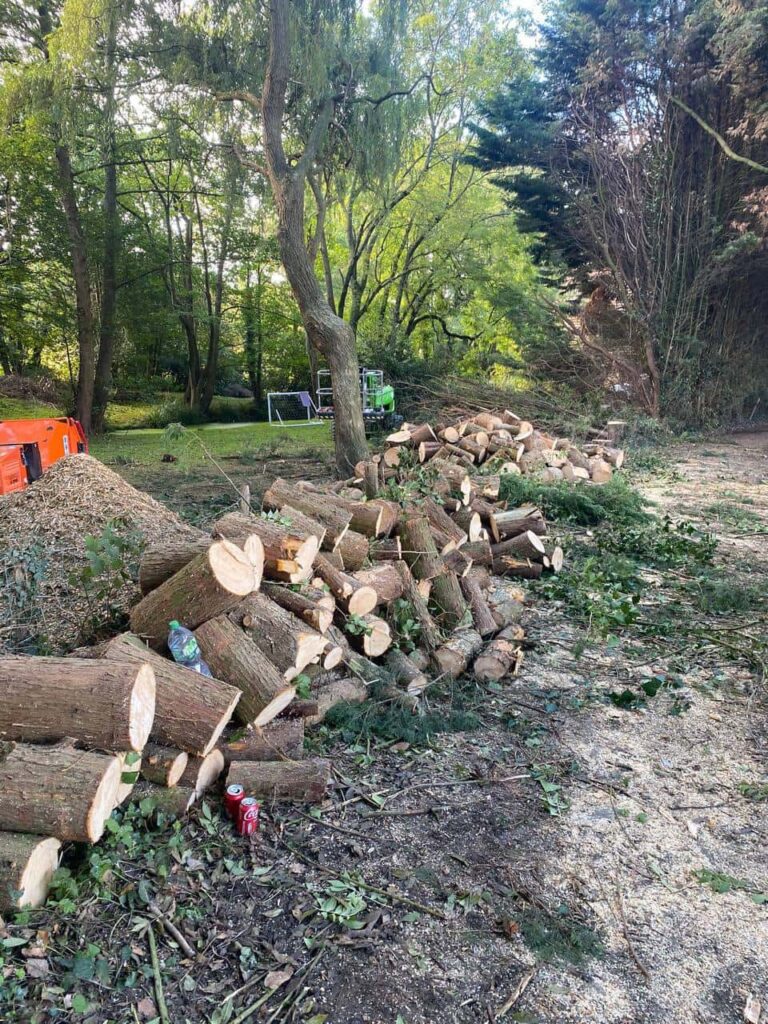Do Hedges Really Improve Property Security?
Introduction
When thinking about home security, hedges might not be the first solution that comes to mind. Most homeowners focus on locks, lighting, and CCTV—but the humble hedge has long played a role in deterring unwanted visitors and enhancing privacy. The question is, can a well-maintained hedge genuinely improve property security, or is it more about aesthetics and tradition?
At Burton Joyce Tree Surgeons, we’ve worked with clients across Burton Joyce and the Nottingham area to shape and manage hedges that not only look attractive but also serve a practical purpose. In this article, we explore how hedges contribute to property security and what to consider when using them as part of your protective strategy.
Natural Barriers: A Timeless Defence
Hedges have historically been used to mark boundaries and create natural deterrents. Unlike a simple fence, a dense, thorny hedge presents both a psychological and physical obstacle that can be surprisingly effective.
Key Benefits of Security-Focused Hedges
- Restricted access – Thick, mature hedges are difficult to climb or push through
- Visual cover – Hedges shield windows and gardens from opportunistic view
- Noise barrier – They reduce sound transmission, helping you hear unusual disturbances
- Aesthetic integration – Offers protection without looking harsh or overly industrial
For many homeowners in rural or suburban areas like Burton Joyce, hedges offer a discreet and natural way to enhance perimeter security.
What Makes a Hedge Effective for Security?
Not all hedges are equally suited for security purposes. The right species, placement, and maintenance are crucial to ensuring your hedge serves its intended function.
1. Choice of Species
Some hedge plants are naturally defensive. The ideal species for security will be dense, fast-growing, and potentially thorny.
Common hedge plants used for security:
- Hawthorn – Dense and thorn-covered, excellent for deterrence
- Blackthorn – Known for its sharp spines and fast growth
- Pyracantha – Attractive berries and extremely thorny branches
- Berberis – Colourful, compact and naturally defensive
- Holly – A traditional evergreen with sharp, glossy leaves
These species not only block access but also make it highly unpleasant for anyone trying to force their way through.
2. Height and Density
For a hedge to be a genuine barrier, it needs to be of sufficient height and thickness. A low or sparse hedge may look attractive, but it won’t deter intruders.
- Aim for a minimum height of 1.5 to 2 metres for privacy and deterrence
- Maintain regular pruning to promote bushy, impenetrable growth
- Avoid gaps at the base by encouraging low-lying branches from early growth stages
At Burton Joyce Tree Surgeons, we ensure that your hedge is shaped for both structure and coverage, enhancing its defensive qualities.
3. Strategic Placement
The placement of your hedge also plays a role in its effectiveness. When planned properly, it can protect vulnerable areas of the property and support existing barriers.
- Plant along rear garden perimeters, where break-ins are more likely
- Use hedges to supplement fencing, especially in overlooked or lower-traffic areas
- Position them to block direct views of doors, windows, or patios
Incorporating hedges into a broader landscaping plan creates a layered security approach that blends with the natural setting.
Can Hedges Replace Fencing?
While hedges can be incredibly effective, they’re best viewed as complementary to other security measures rather than replacements. A solid fence with a defensive hedge in front provides both physical protection and a natural visual screen.
Advantages of combining the two:
- Greater privacy and intrusion delay
- Stronger property boundary definition
- Enhanced kerb appeal and greenery
- Better noise and wind buffering
Where fences can be scaled or cut, a thorny hedge adds an unpredictable and more challenging obstacle.
Ongoing Maintenance Is Essential
An overgrown or neglected hedge can quickly lose its effectiveness. Security hedges must be regularly pruned and cared for to maintain their structure and health.
Key maintenance tasks include:
- Annual trimming to control height and shape
- Clearing debris and fallen branches to discourage hiding spots
- Monitoring for disease or thinning, which can reduce density
At Burton Joyce Tree Surgeons, we offer professional hedge maintenance services to ensure your natural defences stay in top condition year-round.
Conclusion
Hedges are far more than just decorative features—they can be a valuable part of a home’s overall security plan. When thoughtfully selected, strategically placed, and properly maintained, they provide privacy, deter intruders, and create a beautiful green boundary that complements your property.
At Burton Joyce Tree Surgeons, we combine our expertise in tree and hedge care with an understanding of practical landscaping to help homeowners across Nottingham improve both safety and visual appeal. Whether you’re looking to install a new hedge or maintain an existing one, our team is ready to help you maximise its potential. Contact us today to find out how a well-managed hedge could help protect your home.
Call us on: 0115 647 1164
Click here to find out more about Burton Joyce Tree Surgeons
Click here to complete our contact form and see how we can help with your tree needs.

